On September 7 and 8, 2024, the Department of Anthropology UGM celebrated its 60th Anniversary. In its implementation, the Department of Anthropology collaborated with the Indonesian Anthropology Association (AAI) Yogyakarta region. Various activities ranging from ancestral pilgrimage, napak tilas to cooking parties are a series of the anniversary event.
To conclude the event, a wayang orang performance will be held in the hallway of the Margono building. This performance is named Wayang Orang Gagrag Anthropology with the title “Gatotkaca Wedding”. The script of this wayang performance was written by Agung Maulana Ibrahim and directed by Tunggal Wibowo who is an anthropology student class of 2022. This wayang orang performance is an attempt to revive a tradition that has been dead since 2016. In the past, the Anthropology Wayang performance was generally routinely carried out every two years and was last staged in 2016.
The puppet cast this year not only involves students but also involves several alumni, active lecturers and lecturers who have retired. The selection of players aims to show that the relationship between students and lecturers of the Department of Anthropology is not rigid. The rehearsal and preparation of the cast began on September 15, guided by the director and scriptwriter. The rehearsal starts from reading the script, deepening the character to blocking exercises so that the cast can explore the character being played.
On September 7, the cast held a dress rehearsal to finalize their roles. Unlike usual rehearsals, now the players must really memorize the script and explore the characters they play. The director and scriptwriter emphasized not to make mistakes and just follow the flow of the dialog when they enter the stage.
A few hours before the performance, the cast began to be dressed up by makeup artists who were also anthropology students. Starting from the makeup to the costumes, they worked deftly and in accordance with the puppetry rules. Once ready, the cast began to gather behind the stage to prepare supporting equipment such as mics and props. Although it was raining heavily and the performance was postponed for some time, the enthusiasm of the audience remained high.
In the story, Lesmana tries to get the heart of his idol Pregiwa who has been matched with Gatotkaca. With the help of his uncle Sengkuni’s incitement, Lesmana managed to persuade his father (Duryudana) to marry him to Pregiwa. Gatotkaca who did not agree with this finally chose to leave his house and wandered in a sad state and did not agree with his father’s decision. Lesmana’s wish caused a dispute between the Kurawa family and the Pandawa family. Fights between families were inevitable. In the end, Pregiwa still chose to marry Gatotkaca, the love of her life.
The performance, which does not carry the classical style of Yogyakarta or Surakarta, is packaged in a unique way that emphasizes comedy with a little sarcasm satirizing some of the hot topics at that time. The performers are required to improvise to create funny dialogue but still understandable to the audience. Laughter was inevitable when the cast made funny movements or when one of the actors told a joke.
The performance ended with the introduction of the cast. The parties involved hope that the Anthropology Puppet show can provide entertainment for the audience and hope that it will be continued in the following years. Thus ended the series of the 60th Anniversary of the Department of Anthropology.
[Public Relation Faculty of Cultural Science, Author: Nandito Jodi Syaifulloh, Translator: Sandya Kirani, Editor: Sandya Kirani]

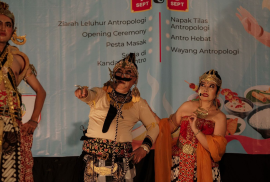
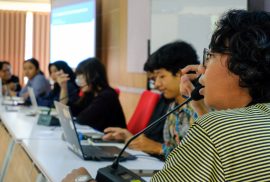
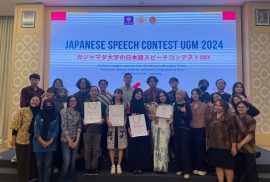
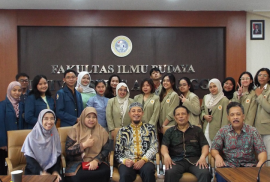


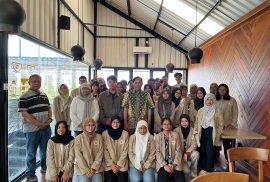
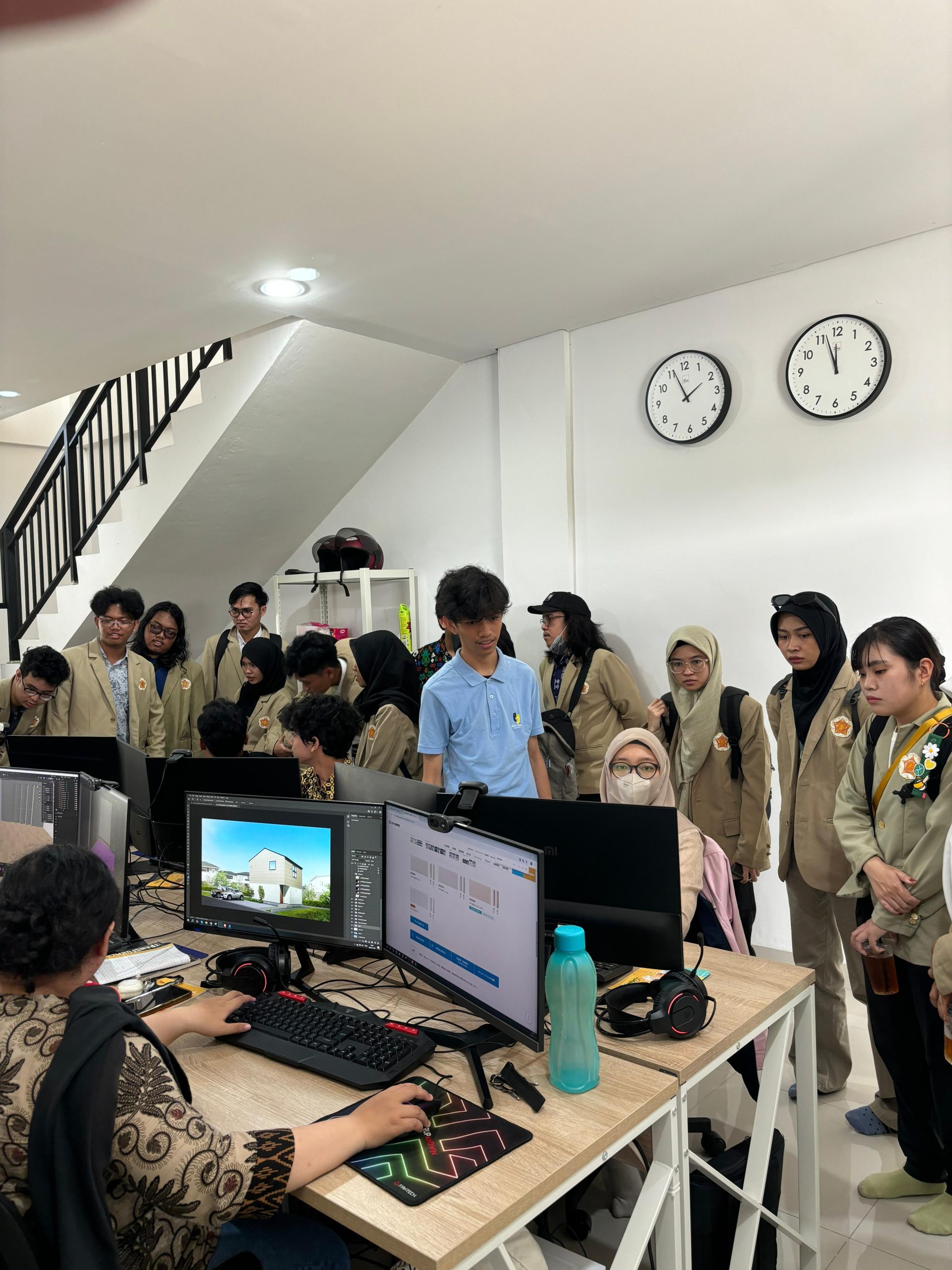 Picture 1 Japanese Counselling Study Programme Students Conduct Field Study at PT Rupa Raya Indonesia, Semarang
Picture 1 Japanese Counselling Study Programme Students Conduct Field Study at PT Rupa Raya Indonesia, Semarang